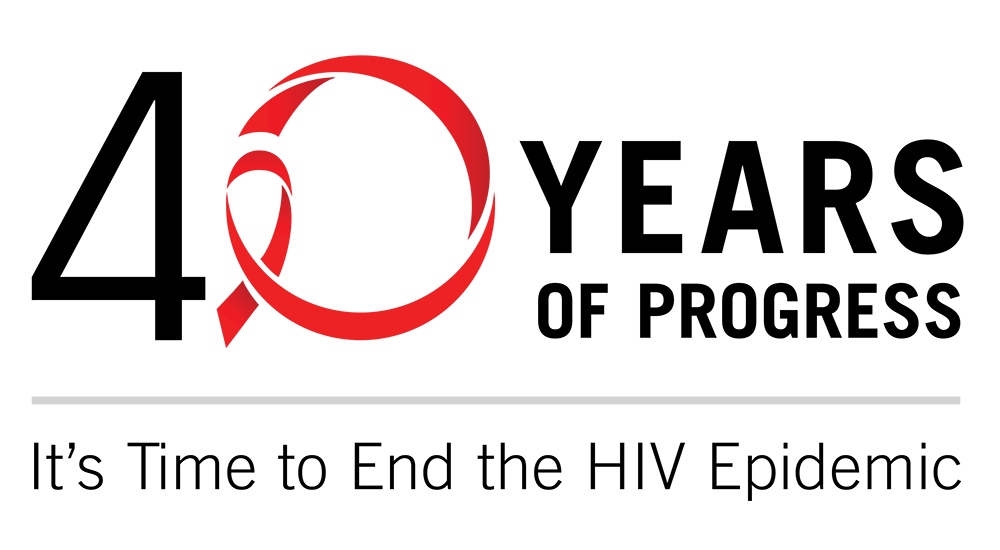On June 5, 1985, the first Morbidity and Mortality Weekly Report (MMWR) to mention what would later become known as AIDS was published.
In the 40 years since, HIV and AIDS treatment and prevention has come so far. VA is currently part of the Ending the HIV Epidemic Initiative which aims to reduce new HIV infections by 75% by 2025 and at least 90% by 2030.
We took this opportunity to talk with some of the Veterans with HIV who have been getting care from VA for decades, asking them to reflect on how far treatment has come.
What is HIV treatment like now compared to when you first started getting care at VA?
“This year will be my 30th wedding anniversary. My wife and I have been positive for 29 of them. Today is so much smoother. Don’t get me wrong, but the difference between now and 30 years ago is knowledge. This was and is (without proper treatment) a deadly, killer disease. Back then, the treatment was to overwhelm the virus and fix any complications later – at least the patient is alive. Today’s doses are so much more appropriate to the level of infection and severity of illness.” – Alex G.
How is VA leading?
“I’m proud of how far VA has come since the beginning of the HIV/AIDS crisis. I’m proud of how they were one of the leading experts in caring for those of us who were dealing with this illness. As this illness progressed, VA took steps to improve how it provided care. They started listening to their patients and working with us instead of just telling us what to do. They respected and allowed me to insert some holistic/herbs with my care. As medication improved, the VA strategy went from giving you a timeline death sentence to the best way in keeping you compliant in taking your medication that was extending life. They offered workshops and support groups as ways for us to gain information about HIV/AIDS that could and would help us in taking better care of ourselves and be around those that were dealing with the same illness.” – Karen H.
What is living with HIV like now compared to when you were first diagnosed?
“The treatment today involves the total health of the individual. Back then, it was concentrated on the virus. Let’s kill the virus! My doctors and the researchers were caring and compassionate enough but there were times with the all too frequent phlebotomies that I felt more like a lab specimen than a patient. Now the healthcare is a whole-body approach and because the medical professionals are better educated, and they’ve tamed their personal biases and fears by following the science, they can be more empathetic to the patients – and for the most part, [they] are.” – Alex G.
Glimmers of successes
“I am happy HIV/AIDS is no longer listed as a top ten disease by the World Health Organization (WHO). Pharmaceutical therapeutics continue to extend the lives of those who are infected. HIV/AIDS is now considered a chronic and treatable disease. However, the structural and human inequities have not improved the outlook for Black Gay Men. We are still overrepresented in the contemporary HIV/AIDS health statistics and underrepresented at the local and national leadership levels. I see glimmers of individual and institutional successes, and that gives me hope. I wish for the complete eradication of HIV/AIDS.” – Maurice F.
What do you think Veterans should know about HIV?
“HIV is no longer a death sentence. If you are willing to comply with your medication regiment, work with your doctors and do the things that will keep you healthy and happy. If you decrease stress in your life, practice safe sex and are willing to take ownership of your healthcare, there is no reason you can’t live a long and healthy life like anyone else.” – Karen H.
“As a Veteran, you already know the value of properly arming yourself for a battle. This is a war and the battleground is your body with your health and life as the spoils of war. Properly arm yourself with knowledge, lifestyle changes and vigilance.” – Alex G.
What do you think VA can do to help end HIV by 2030?
“Continue being in the forefront of research and treatment options. VA literally saved my life when 23 years into my HIV/AIDS journey my liver gave up the ghost from years of antiretrovirals, and I suffered autoimmune hepatitis and subsequent cirrhosis. Years of prescribed overdoses – all in good will, but the treatment was killing the victim. Now I am a fairly heathy 29-year survivor. I’m thriving, with an undetectable viral load and a stable, working liver, and am a grandfather of three. Even if we don’t get a cure by 2030, dying of AIDS should only be a cause of death through willful ignorance thanks to advances that were made with a lot of help from the VA Medical Services” – Alex G.
To learn more about HIV testing, treatment and prevention, please visit: www.hiv.va.gov
Elizabeth Maguire is the communications lead for the HIV, Hepatitis and Related Conditions Program Office.
Topics in this story
More Stories
Study underscores important role COVID vaccination can have in protecting Veterans from infection and reducing long-term health consequences
Columbia VA’s robotic surgery teams completed their 800th robotic surgery and are on schedule to hit 1,000 by the end of the year.
In a decentralized clinical trial, Veterans can participate from their own homes or local VA instead of having to travel to a research site.








